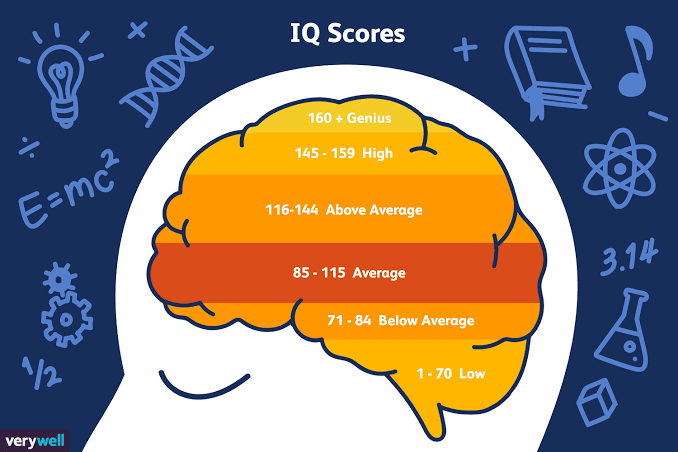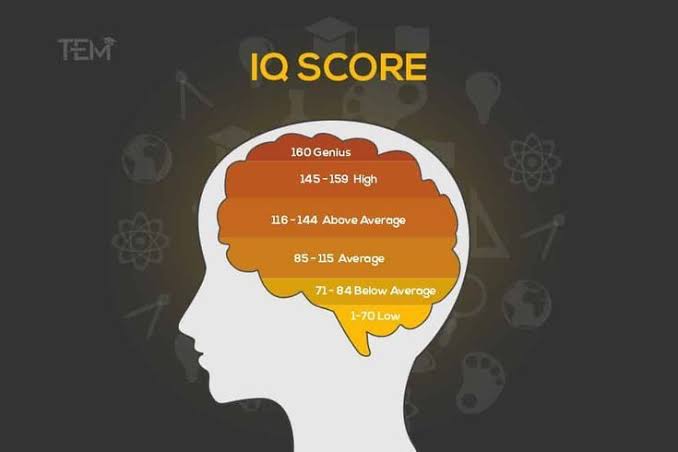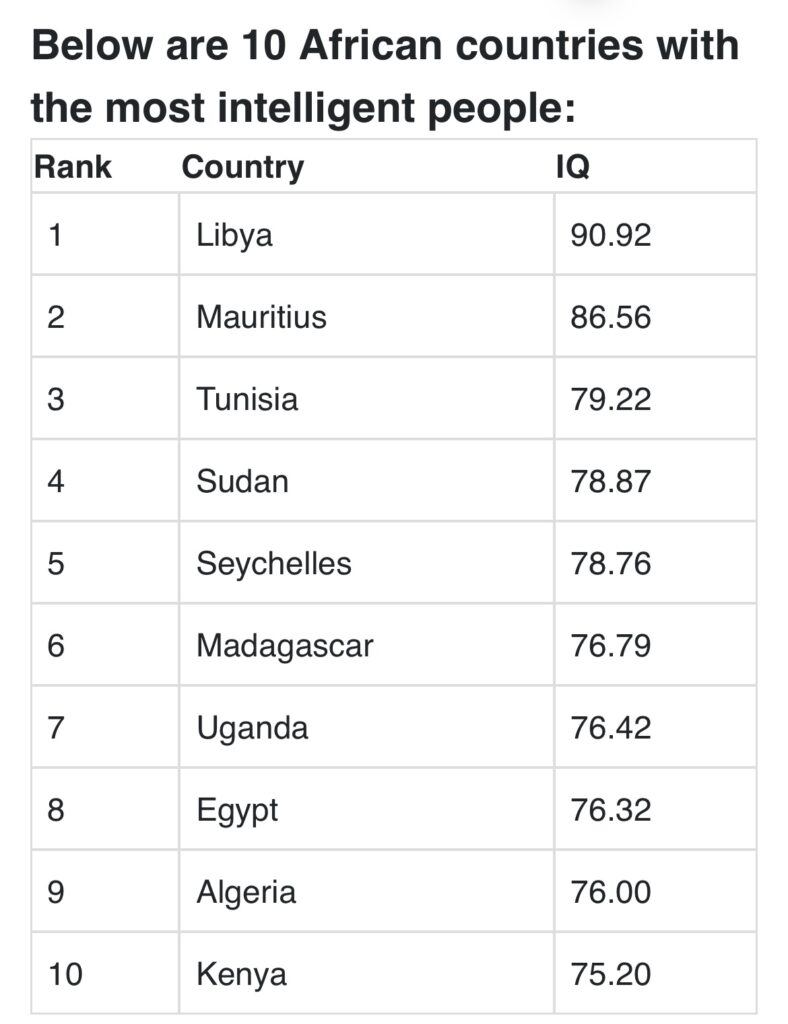
Faith Nyasuguta
IQ, or intelligence quotient, serves as a yardstick for measuring an individual’s cognitive abilities relative to others in their age bracket, encompassing problem-solving skills, logical reasoning, memory retention, and linguistic proficiency.
At the national level, IQ is often utilized to assess the average intellectual aptitude of a country’s populace, shedding light on its collective cognitive capacity. Intelligence, whether at the individual or societal level, significantly influences a nation’s trajectory, impacting various facets of societal advancement, from economic prosperity and technological innovation to social harmony and global competitiveness.

Insights derived from studies and research comparing IQ scores across nations provide valuable insights into the determinants of intelligence levels, such as the efficacy of education systems, socioeconomic status, and resource accessibility.
Notably, the ‘Intelligence of Nations’ report authored by Richard Lynn and David Becker stands out as a comprehensive analysis in this regard.
Recent findings from the report reveal a spectrum of IQ scores across different regions, with sub-Saharan Africa exhibiting an average IQ of 69, contrasting with Northeast Asia’s average IQ of 105. Notably, Libya emerges as the frontrunner in Africa, boasting the continent’s highest IQ score of 90.92.

Additionally, several other African nations secure spots in the top-ten list of the most intelligent countries, showcasing commendable intellectual prowess.
Among them, Mauritius demonstrates an IQ of 86.56, followed by Tunisia at 79.22, Sudan at 78.87, and Seychelles at 78.76. These findings underscore the diverse intellectual landscapes within Africa and highlight the critical role of intelligence in shaping the continent’s trajectory towards progress and development.

RELATED:




